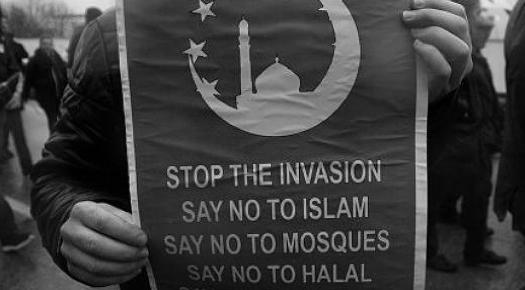
The van veered off the road and drove into people on the pavement. Three men got out of the van and started attacking people with knives. An eyewitness, Eric, told the BBC that he heard shouts of "this is for Allah". The attackers appear to have stabbed people at random in the market. They have killed seven people and injured 48.
The three attackers lived in east London. The Sutton Islamic center in south London suffered a graffiti attack that read: “Terrorize your own country”. Two of them were shot and killed by police. Khuram Butt was a 27-year-old British citizen born in Pakistan but lived in Barking, east London where he was believed to live with his wife and two children. Rachid Redouane, 30 — who claimed to be Moroccan-Libyan — also lived in Barking, east London. He used the name Rachid Elkhdar.
The mayor of London, Sadiq Khan, released figures which showed a fivefold increase in anti-Muslim attacks since the atrocity at London Bridge on Saturday, and a 40% increase in racist incidents compared with the daily average this year. According to the Metropolitan police figures in London, Recorded hate crimes increased to 54 incidents per day, far more than the daily average of 38 so far this year. Daily incidents of recorded crime in general reached 20 where an anti-Muslim motive was identified, while the daily average for 2017 was less than four.
The trends are confirmed by figures from Tell Mama — a national project which records and measures anti-Muslim incidents in the United Kingdom — which said 63 incidents were reported to the independent group from Sunday to Tuesday after the London Bridge attacks rather than to the police. Police and community experts believe this may indicate a substantial under-reporting of hate crimes.
After the Manchester attack on 22 May, there has been a rise of 500% with 141 hate crime incidents compared with a daily average of 25. Then, in the week after, incidents dropped to 37 and after the London Bridge attack on Saturday they have risen sharply to 63 so far. “The type of incidents reported range from assaults, threats, physical violence and online hatred,” according to Fiyaz Mughal, the founder of Tell Mama which monitors and records Anti-Muslim hate crimes.
The National Police Chiefs Council lead for hate crime, Assistant Chief Constable Mark Hamilton, said: “We know that terrorist attacks and other national and global events have the potential to trigger short-term spikes in the recording of hate crime. Following the attacks in Manchester and London, both police forces registered spikes in hate crime.”
The question is why are Muslims expected to apologize for the actions of extremists and why are they punished when terrorist actions happen?
Photo Credits: Muslim News
